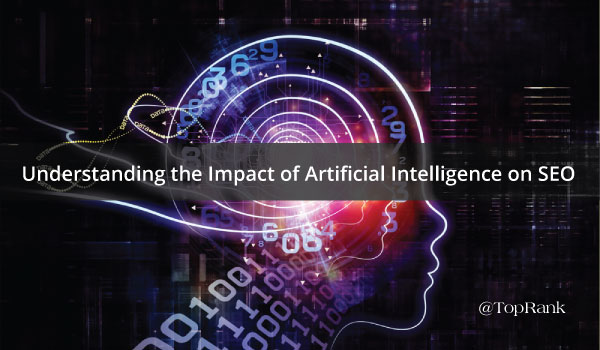Artificial intelligence and machine learning sound like concepts from the future. In reality, it has been used by search engines for a decent amount of time now. Most people have probably heard of Google's RankBrain by now, but if not, RankBrain is a machine learning artificial intelligence system. RankBrain came upon us quickly, and a Google representative claims that RankBrain is the third highest ranking factor it uses now.
Artificial intelligence will change, and has been, changing how search marketers should be optimizing websites. It should make us think differently on what to optimize on a website and what experience we are providing our users. In order to optimize our websites, we need to first understand how artificial intelligence is impacting SEO.
How Does Artificial Intelligence Impact SEO?
Artificial intelligence is allowing search engines, like Google, to learn more about search queries rather than just keywords. Google will be able to judge what sites provide the best results based off of user engagement metrics rather than if the page is fully optimized with both on-page and off-page tactics.
Google will also be able to better understand what additional search queries will take place after an initial search, making the process smoother for the users. It will be able to analyze data based off of a search query so that it can show the best results for each user. Artificial intelligence and RankBrain will provide more relevant results based off of non-traditional ranking factors.
What Can We do as Search Marketers?
As search marketers, we should be excited about Google using artificial intelligence. We have a lot of opportunity to focus on aspects that will provide a better experience for our users than traditional tactics like optimizing the metadata of a page. Of course, those metrics will still hold some relevance to search engines, but we can instead focus on what really matters to users.
We should focus on the following tactics to optimize websites moving forward:
User Engagement on Pages
Google will look more into the engagement metrics on a webpage including: bounce rate, dwell time, average pages per visit, conversion rate, and many other metrics. It will be more important to focus on optimizing the path a user takes once they get on your website. You could even hypothesize that Google may rank a website differently during peak searching hours or certain times based off of the engagement. There are multiple possibilities of engagement metrics that could be used.
Click-Through-Rate (CTR) on SERPs
There has been a good amount of discussion that the CTR on SERPs may impact a rank for websites. REgardless if CTR is a ranking factor or not, we should still optimize for it on SERPs. Search marketers should focus on creating enticing title tags and meta descriptions for each page.
Keyword Optimization
Keyword optimization will always be changing. The trends for certain keywords constantly are fluctuating. Besides that, search engines are getting better at understanding that keywords are related. We need to stop thinking about one keyword and more about what the user really is searching for. Instead, we need to be using long-tail keywords and/or natural language when optimizing our content to match user intent.
Also, we need to know what the next step is after a person conducts a search. People are more savvy online then even a couple years ago. With that in mind, you probably won't convert most of your first time users, and we should be okay with that. There are multiple touch points in the user's journey, so we need to have content for all those additional searches. By using artificial intelligence, search engines will be able to have a better understanding of what additional searches take place after a first query is conducted. We need to place ourselves in our user's shoes to fully understand what they are looking for.
Amplification Rate
Social shares are currently a good way to get more people viewing your content. The people who view your content will then send more data for search engines to analyze when assessing the content. It will be important as search marketers to amplify and promote content within the future. Focus on promoting the top content with amplification tactics including influencer marketing and paid social promotion.
Structured Markup
Another area we can focus on optimizing for artificial intelligence is adding schema markup to the site. This technical SEO tactic is nothing new, but it has become more important. Schema markup tells search engines what the content is actually about. We can help Google to better understand content along with the machine learning algorithms.
Artificial Intelligence is Here
SEO is moving away from general optimization practices and focusing on user engagement data. That doesn't mean that we shouldn't be optimizing websites with the traditional tactics, but we need to start thinking about the bigger picture.
At the end of the day, make your website serve the purpose of your customers. Create an experience that will bring them back by creating a fluid user experience and content that is readable. After all, Google wants what is best for the user, not something that is optimized.
Gain a competitive advantage by subscribing to the
TopRank® Online Marketing Newsletter.
© Online Marketing Blog - TopRank®, 2016. |
Understanding the Impact of Artificial Intelligence on SEO | http://www.toprankblog.com
The post Understanding the Impact of Artificial Intelligence on SEO appeared first on Online Marketing Blog - TopRank®.

Superb blog with amazing information, love to come back for more and in the mean time I was interested in artificial intelligence in seo as the future is only in AI
ReplyDelete